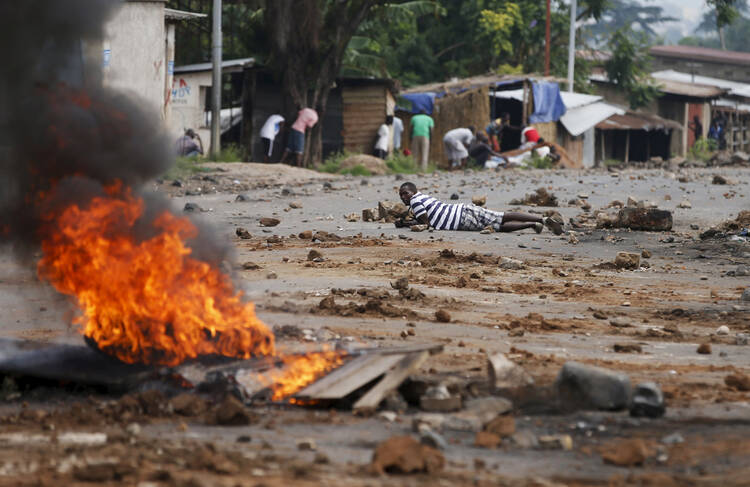A week before the parliamentary round of Burundi's elections, the Catholic bishops announced they had withdrawn permission for several priests who were serving in posts on the national electoral council.
The electoral campaign has been marred by violence triggered by the announcement in April that President Pierre Nkurunziza will run for a third term in the June presidential elections. His supporters say he became president under a 2005 peace deal brokered by the international community and that his first term, which ended in 2010, does not count. Article 96 of Burundi's constitution says the president is elected by universal direct suffrage for a mandate of five years, renewable one time.
Citing canon law, which bans priests from participating in political activities, in a May 26 statement, the bishops explained that they had drawn up a special agreement with the National Independent Electoral Council giving special dispensation for some priests to participate in its work. But after in-depth analysis of the current situation, the bishops have withdrawn the special dispensation.
"After having considered the way in which these elections are organized, and current developments, and taking into account the mission of priests, which is to reconcile people and bring them together in unity ... we have concluded that it would be better for the priests to resign and for the elections to be organized by others," the statement read.
As the June 5 parliamentary elections approached, with the presidential polls scheduled for June 26, the political crisis deepened, as Burundians continued to flood into neighbouring countries, fearing more violence. The parliamentary polls looked increasingly uncertain when, three days after the bishops' statement, international news agencies reported that the electoral commission's vice president, Spes Caritas Ndironkeye, left the country, leaving a resignation letter.
In their statement, the bishops said that despite the difficulties surrounding the current elections, Catholics should still vote, and that lay observers would be deployed by the justice and peace commission to observe the elections.
"Elections are the only good way to renew institutions in the democratic system we have chosen. ... We call on you, our Christians, to carry out your citizen's duty to vote ... vote in a responsible manner, respecting the conscience that God has given you, listening to his Holy Spirit and putting first the well-being and interests of all."








